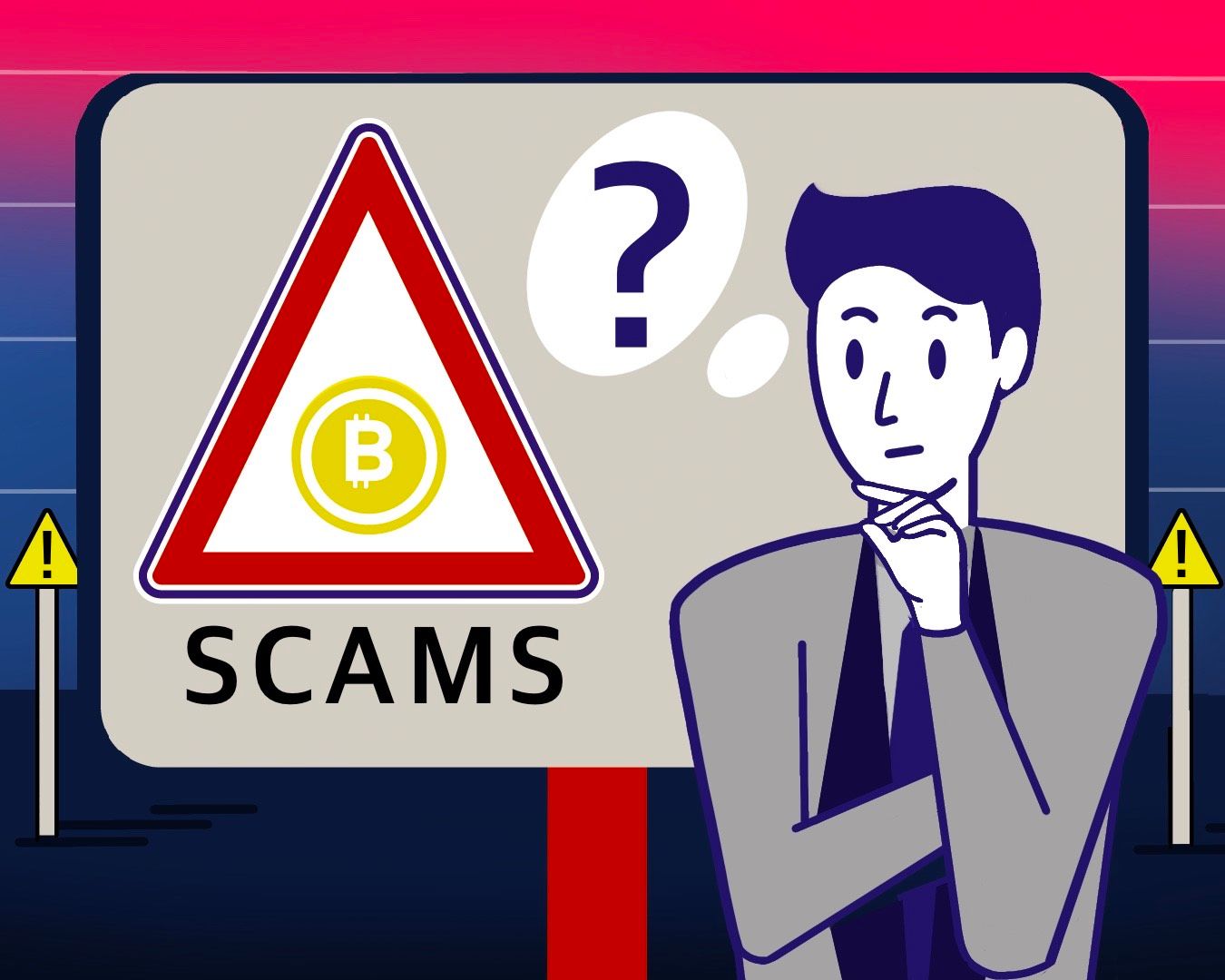With the increase in Bitcoin’s value, the industry has also witnessed an influx of Bitcoin scams. In an industry filled with new users still learning to navigate the space and semi to light regulations, it creates a breeding ground for scammers. Let’s take a look at what are Bitcoin scams and how to avoid them.
What Are Bitcoin Scams?
Bitcoin scams are illicit attempts from hackers to obtain your cryptocurrency. Of course these stretch far beyond just Bitcoin. These scams attempt to take advantage of someone’s ignorance or lack of attention and make your Bitcoin their own. As Bitcoin transactions are irreversible there is no way of getting your BTC back once it’s been taken, so best to exercise caution when doing anything revolving around your crypto.
Here a few things to look out for when looking to discover if something is a Bitcoin scam:
- The URL should start with “https” instead of “http” as this indicates that any data you send to the website will be secure.
- There must be a padlock on the left hand side of the URL to indicate the website is secure.
- The URL should also not have any obvious spelling mistakes or random punctuation.
- The same goes for the website, anything with spelling mistakes and/or bad grammar should be proceeded with caution.
- A classic red flag: if the website promises abnormally high returns, run for the hills. Anything that says it will double your investment carries a high chance of being a scam.
- Celebrity endorsements are often also a scam indicator. Many scams use fake celebrity partnerships to lower their guard and lure investors in.
This list is by no means exhaustive, but a good base to start with. The bottom line is that if something doesn’t feel right, trust your instincts.
Examples of Bitcoin Scams
There are hundreds of different Bitcoin scams out there however we’re going to highlight the most common ones, and the easiest ones to avoid.
Bitcoin Scam #1: Fake Exchanges and Wallets
These types of scams look like regular businesses, and might even operate as such, but have a number of sinister ways to obtain and keep your money. These types of scams often incur pressure to register and deposit funds, or may offer a special “bonus” for depositing within a certain time frame. This is not the casino industry, do not fall for that.
The platform gets hold of your money through several ways. One might be through imposing impossibly high fees to withdraw or make it downright difficult, and another might be to take your funds entirely. In 2017, a Korean exchange named BitKRX was exposed and shut down by the Bitcoin community and local authorities for stealing customers’ money. The platform disguised themselves by using the name of the biggest exchange KRX and made customer’s believe that they were affiliated.
Always stick to reputable platforms, like Oobit.
Bitcoin Scam #2: Blackmail Scams
Not exempt from the fiat world, blackmail scams involve hackers claiming to have gotten access to your PC. Through an email they will communicate that should you not want the sensitive information released to the world, and your email contact list, you will need to send Bitcoin to the address provided. These alleged hackers often also claim to have gotten access to your camera and claim to have incriminating or embarrassing evidence.
More often than not this is just a front and the hackers have no information whatsoever, they are merely trying to frighten and coax as many people as possible into giving them money.
Bitcoin Scam #3: Ponzi or Pyramid Schemes
Ponzi schemes are bad but Bitcoin ponzi schemes, they’re in a league of their own. Bitcoin ponzi or pyramid schemes centre around a company promising to give people impressive ROIs in exchange for them bringing in new customers. While they claim to pay returns, the truth is that they are getting a cut of the new investors’ deposits. The more returns the investors make the more money they put in and the more they convince others to join. Eventually the scheme reaches saturation and it cannot recruit new investors, or the founder runs away with the money, or both. If something sounds like a ponzi scheme, stay clear.
Bitcoin Scams #4: Malware
Malware refers to malicious software that can be installed onto your device oftentimes without you being aware of it. Once in, the hackers have access to everything from your fiat bank account details to your Bitcoin wallet addresses. They are able to drain your Bitcoin wallet, replace your wallet address for theirs, or even load mining software that will use your electricity but send the mined coins to the hacker (known as cryptojacking). Always ensure that your antivirus software is up to date and that when downloading a program it comes from a reputable source.
Bitcoin scams #5: Fake Cryptocurrencies
Similar to fake ICOs, fake cryptocurrencies involve a team presenting a project, often with the tagline “the next Bitcoin” and prey on investors who feel they have missed the Bitcoin bandwagon (which is not the case). In 2013, a new cryptocurrency emerged following a similar pattern called My Big Coin. The SEC shut the Bitcoin scam down after investors made off with $6 million.
Whenever looking to buy a new cryptocurrency, always be sure to do your own research (DYOR).
Stay Away From Crypto Scams
If you navigate the crypto markets with a healthy dose of knowledge and common sense you should be clear of these Bitcoin scams. As the landscape is always changing be sure to stay aware of what’s happening and always trust your gut.
_______________________________________________________
Oobit Technologies Pte, 50 Raffles Place #37-00 Singapore Land Tower, Singapore (048623). is a company registered in Singapore (no:201716443G), that has been approved as Appointed Representative of Oobit Technologies OÜ, Harju maakond, Tallinn, Lasnamäe linnaosa, Väike-Paala tn 2, 11415, (no: 14852617 ). Which is authorized and regulated by the FIU (no: FVR001421 and FRK001304).
